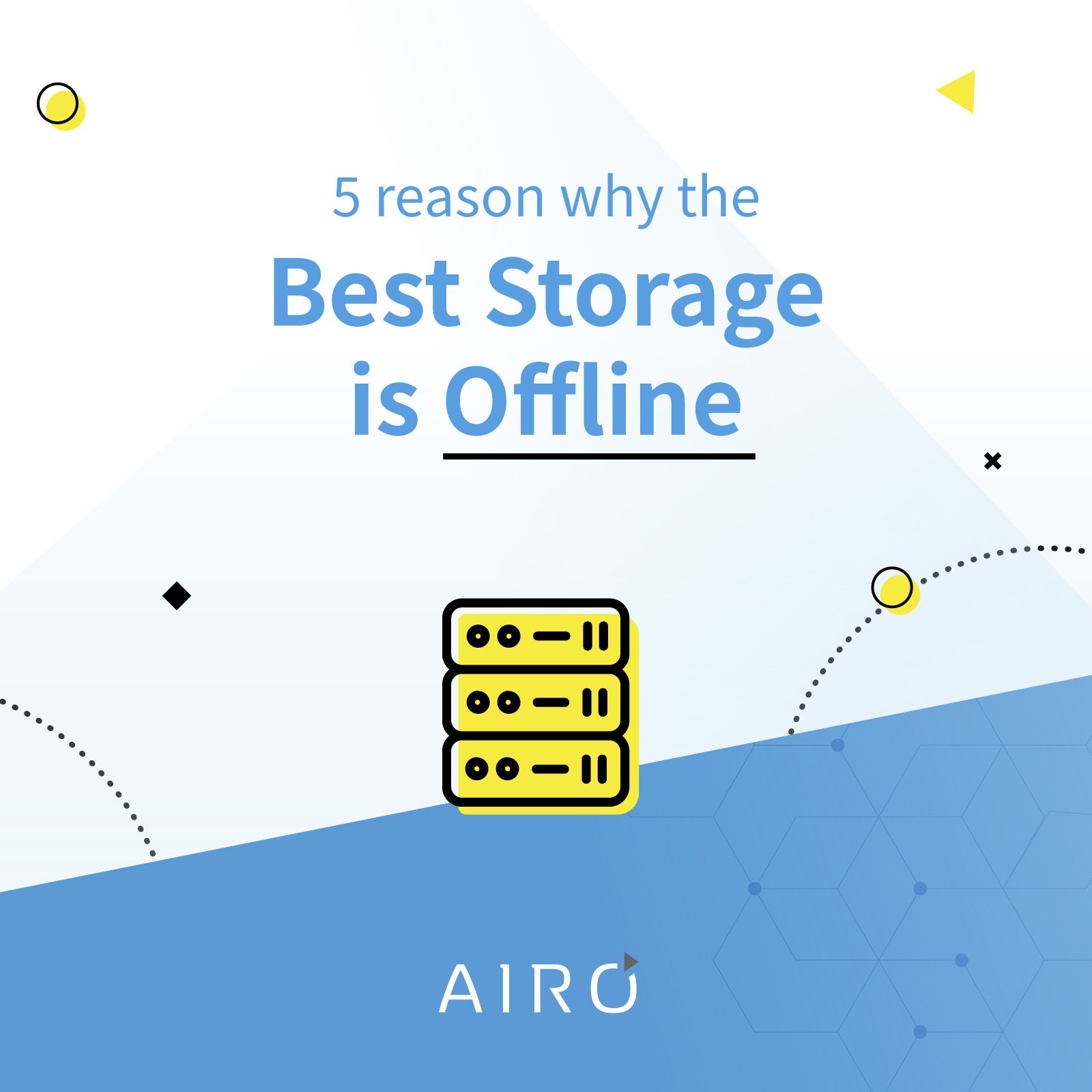
With the rising cases of cybercrime and cybersecurity threats, it’s not surprising that people are willing to do a lot to protect themselves and their sensitive information – and that’s especially true for brands and businesses that conduct most of their business online. One of the most common weaknesses of working online is that your data is never truly 100% safe: between human error, software weaknesses, and viruses adapting quicker than most security patches can keep up with, the only way to protect yourself is to make sure you backup your data often and make sure to keep it well protected.
And the best way of keeping it protected is to store your backup data offline.
Offline storage
Offline storage has a lot of advantages: besides the fact that it’s nearly impossible to hack something that isn’t online, it’s easy to update and to keep track of who has access to it, making it easy to see if something has gone wrong.
That said, there are a few disadvantages to keep in mind.
Offline storage solutions are hacker-proof, but you face a much larger risk of natural disaster – if your office floods or if there’s an electricity surge that affects your hard drive, it might prove difficult to recover your data. A good company can take care of this for you, and it’s easy to make sure that your backup data is stored somewhere as safe as possible, but it’s best to mention it anyway.
Offline storage is also more predisposed to theft, but with a secure lock and an off-location storage unit, that doesn’t need to be a concern.
The best way to make sure your offline storage is secure for you is to have a dedicated server room with a high-security system to keep your files safe. Additionally, make sure you have a separate copy of your backup data to revert back to if you ever run into a problem – but this is just best practice, regardless of whether you store your data offline or online.
With the disadvantages out of the way, here are the pros of offline backup.
1. Much less prone to cybersecurity threats
Regardless of where you’re storing your backup data, a completely offline server is going to make your life a lot more secure in terms of threats since there’s very little possibility of an outside threat managing to make its way into your systems.
2. Physical copies are easier to keep at hand – safely
Having a physical copy of your entire system can mitigate the risk that a catastrophic network failure wipes out some of your hard-done work. Making sure to update it frequently and keep it updated takes some doing, but the benefit of a continuously updated version of your systems being offline makes a lot of sense in today’s high-risk world.
3. Easier to monitor
Data that’s stored offsite in a physical location only has a limited amount of places to go: whether it’s on a USB drive, CDs, or a hard drive, data that’s stored offline is compact and easy to keep track of, whereas data in the cloud could span multiple servers and networks. When it comes to updating, deleting, or changing any information you have stored, offline data storage is unparalleled – and there’s no risk that some of the deleted data will remain present. Once something is deleted off of offline storage, it’s gone for good.
4. Easier recovery
Say the worst has happened and something has affected your business; you need to start over from scratch, or near enough from scratch. When a disaster affects your business and all your data is stored in the cloud, there’s a very real chance that you might not be able to recover your data in its entirety, or it can be rendered unusable through whatever cyber threat or downage affected your company. Offline storage, on the other hand, doesn’t have any such risks attached: your data, provided that it’s continuously updated, is up and ready to go the second a problem happens, making business recovery fast and easy.
5. Own your data – entirely
There’s no denying that cloud-based computing offers a lot of advantages for small to medium enterprises, but there’s one big flaw that some companies find hard to swallow: the idea that a third party has access, however narrowly, to your data. With offline storage, you own every inch of your data and nobody but you and your employees have access to it, making it much safer for confidentiality than the cloud.
If this sounds like a lot of hard work, don’t worry: IT companies can also help you figure out an offline storage solution that’ll benefit your business, and even figure out a plan to make sure your updates never falter. Trusting your company’s security to a third party might be risky, but IT companies understand the importance of keeping data secure, and are an excellent way to make sure that you’re doing offline storage correctly.

